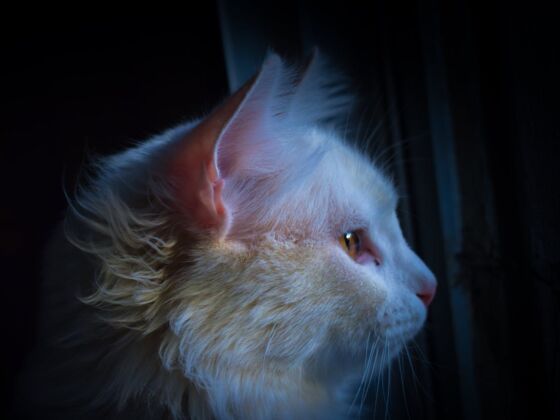
Understanding Why Your Cat is Active at Night
It is not uncommon for cat owners to experience situations where their cats wake them up during the night by meowing, scratching at the door, or knocking things off shelves and counter tops.
Reasons why:
- Cats are crepuscular, which means that they are most active at dawn and dusk. However, some house cats that either started off as strays or spend a lot of time outdoors, may develop the habit of being most active at night due to the fact that night time is when their prey is most active.
- Young cats are full of energy and can be rambunctious at any time of the day or night.
- Fear may cause your cat to hide during the day, when people and other animals are most active, and then come out at night when they feel safe.
- Your cat is responding to your schedule. Many owners first start to interact and play with their cats when they get home in the evenings. This causes a shift in the cat’s day and results in them reaching their peak activity level at night.
What to do:
See your veterinarian: If this behavior is new, take your cat to see your veterinarian. Any major change in behavior can be the result of an underlying medical issue.
Increase their play time: Play with your cat in the evening before bedtime.
Create a stimulating environment: Cats sleep a lot during the day because their environment is not very stimulating. The following ideas can help stimulate your cat during the day, so they don’t sleep ALL day.
- Provide interactive toys during the day, like battery operated motion toys.
- Install a window perch, so your cat can observe the butterflies, squirrels and other wildlife in your yard.
- Install a birdfeeder outside your window.
- Feed your cat in a puzzle feeder, like Stimulo puzzle feeder or the Petsafe SlimCat Meal Dispensing Cat Toy.
- Hide dry kibble or dry cat treats around the house, so your cat has to seek them out.
Training: Clicker training is a type of positive reinforcement training that will not only provide mental stimulation but will strengthen the bond you have with your cat and can increase the confidence of a fearful cat.
Ignore the behaviors: If needed use earplugs.
Keep your cat outside the bedroom: Keep your bedroom door closed and provide a warm, cozy cat bed in another room.
Use aversives: If your cat sits outside your door, meowing and scratching at the door, use an aversive to deter them from hanging out around the door.
What not to do:
- Do not punish your cat, including yelling at her. Punishment can cause a fearful cat to be more fearful and result in aggression. Also any interaction WILL reinforce the behavior.
- Do not get up to pet, feed, or put your cat outside the room. Again any interaction WILL reinforce the behavior.

